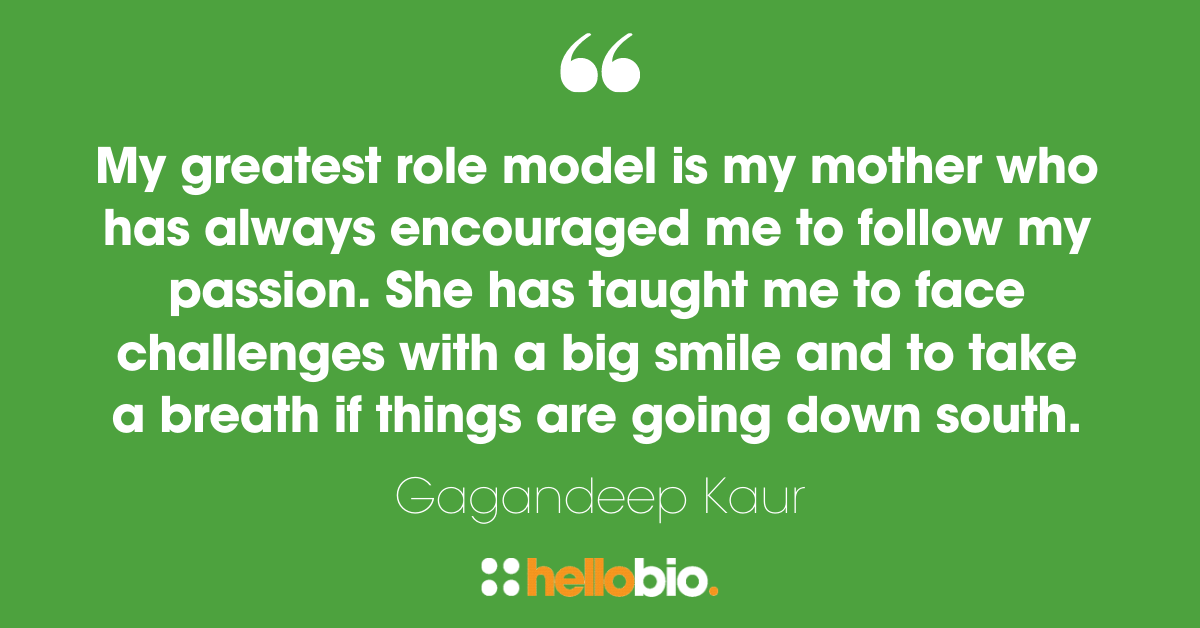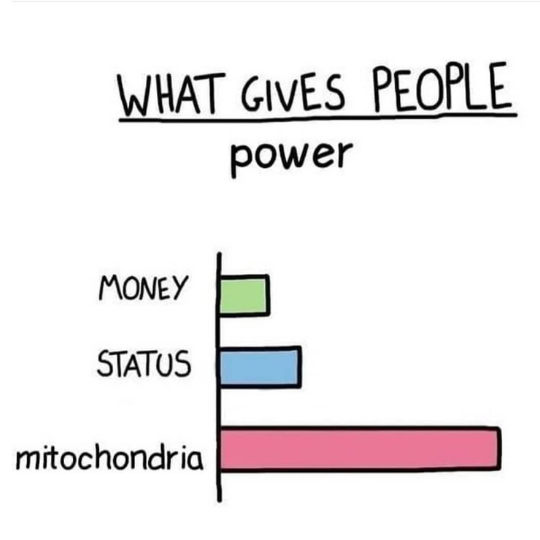Interviews with Scientists: Gagandeep Kaur
Dr. Gagandeep Kaur is a postdoctoral research associate at the College of Medicine, Texas A&M University, USA. She received her PhD in bioorganic chemistry in 2017 at the Indian Institute of Technology Kanpur (IIT Kanpur). Her research involved engineering self-assembling peptide-based materials for biological and nanotechnology-based applications. She is a researcher and educator with strong expertise in the interdisciplinary fields of biomaterial chemistry, drug delivery, stem-cell engineering, and regenerative medicine. She is passionate about engineering extracellular vesicles as drug delivery systems, with a career goal to establish a lab which focuses on innovations in the healthcare and biomedical fields.
We caught up with Gagandeep to find out more about her current research, her role models, her advice for young scientists, and more...
Thanks for speaking with us, Gagandeep! Firstly, please do tell us a bit more about your current work...
I am a postdoctoral research associate at the College of Medicine, Texas A&M University, College Station, working on an NIH-funded project focused on exploring the therapeutic potential of mesenchymal stem cells (MSCs)-derived extracellular vesicles (EVs) or biological nanoparticles to prevent the onset of autoimmune diseases as well as halting immune responses before irreversible damage occurs.
What is the main focus of your current research?
Autoimmune uveitis is a chronic inflammatory condition of the uveal layer of eye which can result in blindness due to disruption of the photoreceptor layer in the eye by the body’s own immune cells. The cause of this disruption in immune cell behavior is still unknown. The main focus of my current research is engineering mesenchymal stem cells (MSCs)-derived extracellular vesicles (EVs) and exploring them as a potential treatment for experimental autoimmune uveitis (EAU). I am leading the project by establishing an experimental autoimmune uveitis (EAU) mouse model and developing a therapeutic potential for the same, using stem-cell engineering.
What was your PhD research focused on?
My PhD research was highly interdisciplinary work which involved the design, development and, implementation of synthetic functional materials composed of peptides and polymers, self-assembly and utilization for diverse applications in biology, and nanotechnology with the following projects:
- Demonstrated self-assembling peptide encoated polymer-based nano-mats for cancer cell detection with HeLa cells (human cervix-carcinoma cells) and HEK 293 (Human embryonic kidney, noncancerous) cells.
- Developed folic acid based self-assembling peptides nanoarchitectures for cancer cell (HeLa cells (human cervix-carcinoma cells), MCF7 cells (breast cancer cell line) and H460 cells (lung cancer cells)) transport mechanisms.
- Established the hierarchical assembly in small self-assembling L-phenylalanine based peptides with different metal ions and as metal-peptide frameworks (MPF) for catalytic application.
What is it about your field of work that excites you most?
Contributing to groundbreaking work in the field of medicine and improving healthcare for mankind has always been my passion. I am very excited about finding a therapeutic potential for autoimmune diseases. I like accepting challenges and giving my best to what I do. My career in the field of research has been immensely rewarding so far. Some of the activities which have shaped my career include attending scientific conferences, regularly presenting my research work to scientific audiences, mentoring students, judging workshops, and assessing manuscripts in peer-reviewed journals.
Did you always want to be a scientist when you were younger, and why?
I was a very curious kid. When I was 8 years old, my father gifted me a toy chemistry set as a birthday present and I was blown away with it. I always knew that I would pursue a career in science, but being a scientist wasn’t pre-planned. It just happened as I kept feeding my curiosity with fun projects and experiments at home and school. I have received a lot of support and encouragement from my family, friends and mentors which kept me pushing through.
What achievement are you most proud of in your career so far?
I am the first one in my family to obtain a PhD degree and I consider it to be one of my biggest achievements so far. I am proud of my research work and publications.
What’s the most important lesson you have learned in your career so far?
I would like to mention three important lessons I have learned so far:
- Curiosity, persistence and patience will pay-off in the long run
- It’s very crucial to find the right people to work with
- Your mental health is as important as your physical health
What do you think are the biggest challenges facing life scientists today?
In my opinion, some of the major challenges faced by scientists in current times are lack of funding and support; gender inequalities at senior positions; lack of adequate and accurate science communication; work life imbalance because of excessive work demands and unmatching salaries; lack of job security in academia after finishing postdoctoral research training.
The COVID-19 pandemic is an additional challenge which has limited the mobility of lab resources resulting in delays in research work.
How has the COVID-19 pandemic affected your research?
The lab shutdowns, the shortage of essential lab supplies due to COVID-19, and the immense isolation have adversely affected everyone’s work at my lab. My project work and publications have been delayed which has affected my career. Hopefully, things will become better after the vaccine roll-outs.
What advice would you give to a young life scientist just starting out in their career?
Follow your passion. Be patient and kind with yourself and others. Be helpful. When you see someone struggling, lend a helping hand. Be ready to learn from anyone who can offer you advice. Teamwork and collaboration are of paramount importance.
Who has been your greatest role model, and why?
My greatest role model is my mother who has always encouraged me to follow my passion. She has taught me to face challenges with a big smile and to take a breath if things are going down south. I also look to my current and past mentors for advice.

What does a typical working day look like for you?
I plan my whole week’s work every Friday evening after a discussion with my PI. My typical day includes taking care of my experiments, helping my colleagues, managing lab supplies and orders, and troubleshooting if something isn’t going right. Also, we present current literature in our journal club every day in order to keep up with the new published work.
Outside of your career, what do you enjoy doing most? (eg. hobbies, passion projects, etc)
I enjoy being in nature. Hiking, gardening, and traveling are some of the things that I like doing in my free time. I love dancing. It helps me forget about everything for a while.
If you weren’t a scientist, what do you think you would be doing instead?
I like to spend time with animals, and I would have been working as a veterinarian doctor if I were not a scientist.
What do you think is the greatest scientific discovery of all time?
In my opinion, the discovery of Penicillin (antibiotics) is the greatest scientific discovery of all time.
And finally, what's your favorite science joke or meme?

_________________________________________________
Thank you so much for a fantastic interview, Gagandeep! We wish you all the best with your continued research.
Connect with Gagandeep Kaur:
- Website: gagandeepkalsi.com
- Twitter: @gakaur
- LinkedIn: Gagandeep Kaur, Ph.D.
_________________________________________________
If you enjoyed this article, why not check out the other resources available on our blog. We are passionate about supporting life scientists, early career life scientists and PhD students - with really low- priced reagents and biochemicals, early career scientist grants, and resources to help with both personal and professional development. We know how tough it is - so we hope you find these helpful!
Advice & guidance for life scientists
Click below to view our essential guides and articles to support life scientists, PhD students & early career life scientists:
Wellbeing for scientists
Click below for our resources to help improve your wellbeing:
Technical resources
Try our Molarity Calculator: a quick and easy way to calculate the mass, volume or concentration required for making a solution.
Try our Dilution Calculator: an easy way to work out how to dilute stock solutions of known concentrations
And - when you get to the stage of planning your experiments, don't forget that we offer a range of agonists, antagonists, inhibitors, activators, antibodies and fluorescent tools at up to half the price of other suppliers - click below to see how we compare with other suppliers:


















